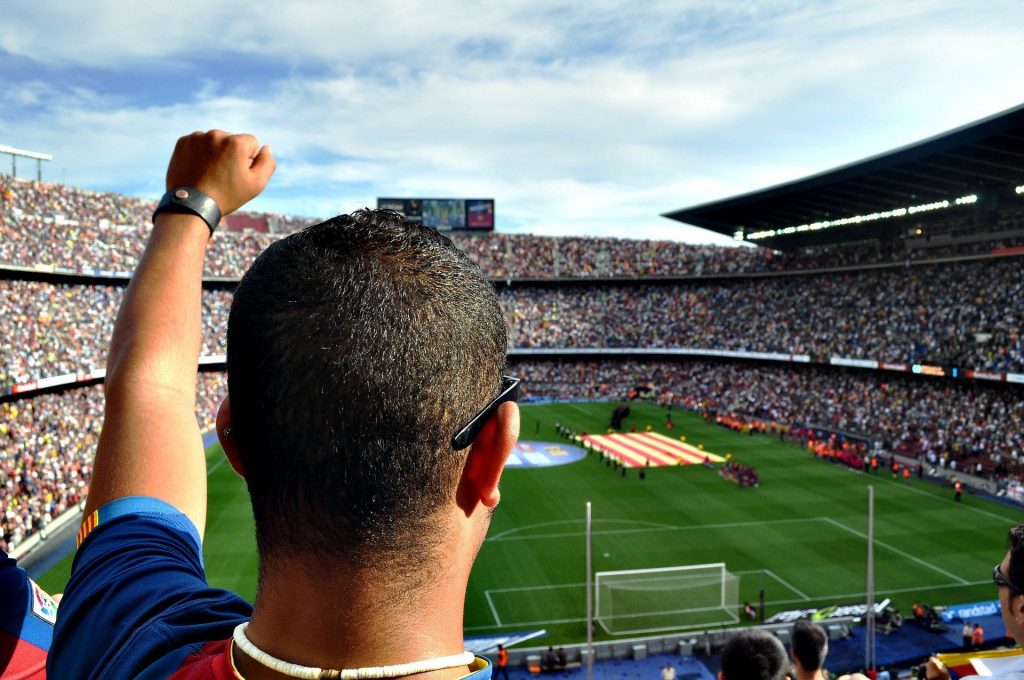
Luiz Felipe Scolari is a legendary soccer player and manager. Born in the seat of worldwide soccer excellence, Brazil, Scolari has played and coached the beautiful game for most of his life.
In 1998, the Brazilian soccer club, Palmeiras, hired Scolari as their manager. The year before he arrived, Palmeiras finished their season in 2nd place in the coveted Campeonato Brasileiro Série A league, the top tier in all of Brazil. Expectations to rise to the next level were high.
In his first year at the helm of Palmeiras' celebrated team, Scolari focused on the team's future leaders, benched some talented but selfish players ... and they finished the season in a dismal 10th place.
With a fan base of over 15 million rabid soccer fans including 100,000 season ticket holders, you can believe that the drumbeat for change in Palmeiras was deafening.
However, Scolari at that point in his career had already managed and achieved success with sixteen international, professional teams before coming home to Palmeiras. He was not intimidated easily.
He had a plan that required vision, support, and a belief in something bigger than themselves. So he worked his plan for the greater good, every day with every player.
It wasn't easy.
During home games, the seats behind the team's bench were filled with vocal 'stakeholders' of the Palmeiras elite who freely shared with anyone who would listen how the team should play, how Scolari should manage, and how they were entitled to their demands because they bought a ticket to the game, etc.
That dynamic is a common refrain among fans of any sport, of course: someone who never played or coached demanding how others should play and coach.
Truly, arrogance like that knows no limit.
In this case, Scolari pushed back. He publicly labeled these customers "a classe de amendoim" or "The Peanut Class".
Long before Scolari's standoff with the Palmeira gallery, in the early days of live theater, the cheap seats were in front, closest to the stage.
So too were the cheap snacks enjoyed by the rabble-rousers: peanuts. When the trained actors failed to impress the inebriated and self-righteous fans, the drunks would hurl their peanuts at the thespians in disgust.
When they decided to push back, the actors would rightfully respond: "Enough from the peanut gallery!"
The actors knew that to produce successful live theater, they required a plan with vision, support, and a belief in something bigger than themselves. So they worked their plan for the greater good, every performance with every cast member.
The terms "engagement" and "empowerment" are frequently bandied around. The terms typically apply to how to cultivate employees (inside stakeholders) but they are often misapplied to customers, outside stakeholders, etc.
While empowered and engaged employees are desired, the same benefits do not extend to outside stakeholders.
An outside stakeholder (vendor, ticket holder, citizen, etc.) seldom operates with all of the information that a team's leadership relies on to make decisions.
Those that understand the significance of 'the greater good' accept this role.
However, for those that are frustrated with their lack of authority to influence a leader's decision-making, they often act out in childish ways, fueled by their unabashed self-interest.
For example:
Google and Apple host vendor conferences to share information, provide insight and seek suggestions ... but they do not relinquish control of their leadership and decision-making.
- Some customers still bash the companies for discontinuing a favorite model or for changing the software.
City Councils have open meetings (I know, they're required by law regardless) to share information, provide insight and seek suggestions ... but they do not relinquish control of their leadership and decision-making.
- Some citizens still grouse about the new traffic pattern, trash pickup schedule or new playground equipment.
Sports teams have season ticket holder meetings to share information, provide insight and seek suggestions ... but they do not relinquish control of their leadership and decision-making.
- And some ticket-holders still throw peanuts when their team is not winning or their favorite player isn't treated specially.
After leaving Palmeiras (who quickly regained their top spot under Scolari's leadership), Scolari took over managerial duties for a struggling Brazilian National Team.
Just like in Palmeiras, he cut notable players that were selfish and didn't support his plan. He soldiered on with a lesser known but loyal squad.
He had a plan that required vision, support, and a belief in something bigger than themselves. So he worked his plan for the greater good, every day with every player.
And in 2002, Scolari's Brazilians beat Germany to claim the biggest prize in the soccer universe: The FIFA World Cup.
Teams of all types succeed or fail based on the actions of people in them and the people leading them. To reduce failure and increase success, follow these covenants for leaders:
- Communicate your vision, early and often.
- Earn and then expect support for your plan, even if there is disagreement. An agreement is not required to support and move forward with a plan.
- Do the most good for the most people, not just the most vocal.
- Transform your leadership with more resources HERE.
Improve your Leadership Skills
Free, 4-day email course
"4 Things Successful Leaders Know & Do During a Crisis"
